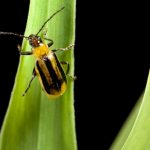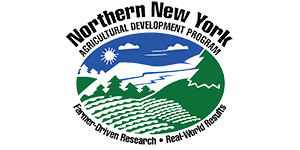 The latest results of NNYADP research projects are now posting at on this website under the About: Projects by Year tab or click here: https://nnyagdev.org/index.php/nnyadp-2023-projects/. As additional project reports are received, this list will be updated. Funding for the Northern New York Agricultural Development Program is supported by the New York State Legislature through the NYS Assembly and is administrated by the NYS Department of Agriculture and Markets.
The latest results of NNYADP research projects are now posting at on this website under the About: Projects by Year tab or click here: https://nnyagdev.org/index.php/nnyadp-2023-projects/. As additional project reports are received, this list will be updated. Funding for the Northern New York Agricultural Development Program is supported by the New York State Legislature through the NYS Assembly and is administrated by the NYS Department of Agriculture and Markets.
14 projects prioritized for attention in 2023 and early 2024 by the farmer-driven NNYADP were conducted in 2023-early 2024.
AGRICULTURAL ENVIRONMENTAL STEWARDSHIP and CROP PRODUCTION
– Tile Drainage and Water Quality
Quantifying Long-Term Agronomic and Water Quality Impacts of Cropland Management (Tile Drainage) in NNY Corn Fields: Year 6
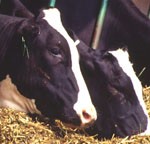
DAIRY
The Effectiveness of Fans for Heat Stress Abatement in Lactating Dairy Cows in NNY:The Value of Improving Wind Speed in Dairy Freestall Housing During Summer: A Comparison of Animal Well-Being and Economic Impact Before & After Fan Installation on a NNY Dairy Farm
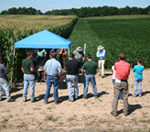
FIELD CROPS
The Value of Manure: On-farm Evaluation Year 2
Comparison of Enlist Corn and Soybean Weed Control Programs
Evaluation of Corn Herbicide Programs With or Without Atrazine
Whole Farm Nutrient Mass Balances and Nitric Oxide (N2O) Emissions: Win-Win?
Satellite-Derived Yield Classification Maps and Yield Stability Zones for Management: Year 2
Is Soil Compaction a Driver of Yield? Update coming soon
Cover Crops: Cereal Rye Varieties and Planting Dates for NNY
The Effect of Interseeded Alternative Forages on the Yield and Forage Quality of Corn Silage in NNY

LOCAL FOODS & HORTICULTURAL CROPS
Alternative High Tunnel Crops for Northern New York Growers
Evaluating the New Apple Thinning Material “Accede” Under Northern NY Conditions
Establishing New Commercial Fruit & Nut Crops for NNY
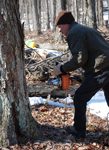
MAPLE & FOREST PRODUCTS
Shrinking Maple Taphole Size to Increase Tree Health

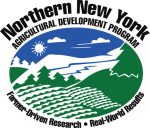 Funding for the Northern New York Agricultural Development Program is supported by the New York State Legislature through the New York State Assembly and administrated by the New York State Department of Agriculture and Markets. Learn more at
Funding for the Northern New York Agricultural Development Program is supported by the New York State Legislature through the New York State Assembly and administrated by the New York State Department of Agriculture and Markets. Learn more at  Presentations at the NNYADP Research Update Meetings will share the latest data and information as one or both meetings as follows. At both meetings, Cornell University Nutrient Management Spear Program Director Quirine M. Ketterings, Ph.D. will present data from a suite of whole farm sustainability projects, including nutrient mass balance and greenhouse gas emissions footprinting; the value of manure, and the use of satellite imagery to determine crop yield stability zones.
Presentations at the NNYADP Research Update Meetings will share the latest data and information as one or both meetings as follows. At both meetings, Cornell University Nutrient Management Spear Program Director Quirine M. Ketterings, Ph.D. will present data from a suite of whole farm sustainability projects, including nutrient mass balance and greenhouse gas emissions footprinting; the value of manure, and the use of satellite imagery to determine crop yield stability zones. Also at both meetings, Uihlein Maple Research Forest Director Adam Wild will share information on how tapping into other-than-maple tree species for syrup production can increase maple producers and landowners’ economic potential, plus how a warming climate creates new challenges for sugarmakers.
Also at both meetings, Uihlein Maple Research Forest Director Adam Wild will share information on how tapping into other-than-maple tree species for syrup production can increase maple producers and landowners’ economic potential, plus how a warming climate creates new challenges for sugarmakers. Miner Institute Research Scientist Laura Klaiber will share data from 10 years of edge-of-field drainage on the quality of surface runoff and tile drainage, the environmental and agronomic impacts of systematic tile drainage in corn and grass fields and when planting cover crops after corn harvest, and crucial insights into the water quality impacts of widely adopted farming practices.
Miner Institute Research Scientist Laura Klaiber will share data from 10 years of edge-of-field drainage on the quality of surface runoff and tile drainage, the environmental and agronomic impacts of systematic tile drainage in corn and grass fields and when planting cover crops after corn harvest, and crucial insights into the water quality impacts of widely adopted farming practices. Presenters at the March 20th NNYADP Research Update Meeting in Lowville will include Dr. Ketterings and Adam Wild as well as Cornell PRO-DAIRY Dairy Forage Systems Specialist Joe Lawrence discussing how producers can gain the most value from corn silage evaluation data from regional on-farm trials and how the evaluation process has change to determine the best fit for any single farm.
Presenters at the March 20th NNYADP Research Update Meeting in Lowville will include Dr. Ketterings and Adam Wild as well as Cornell PRO-DAIRY Dairy Forage Systems Specialist Joe Lawrence discussing how producers can gain the most value from corn silage evaluation data from regional on-farm trials and how the evaluation process has change to determine the best fit for any single farm.
